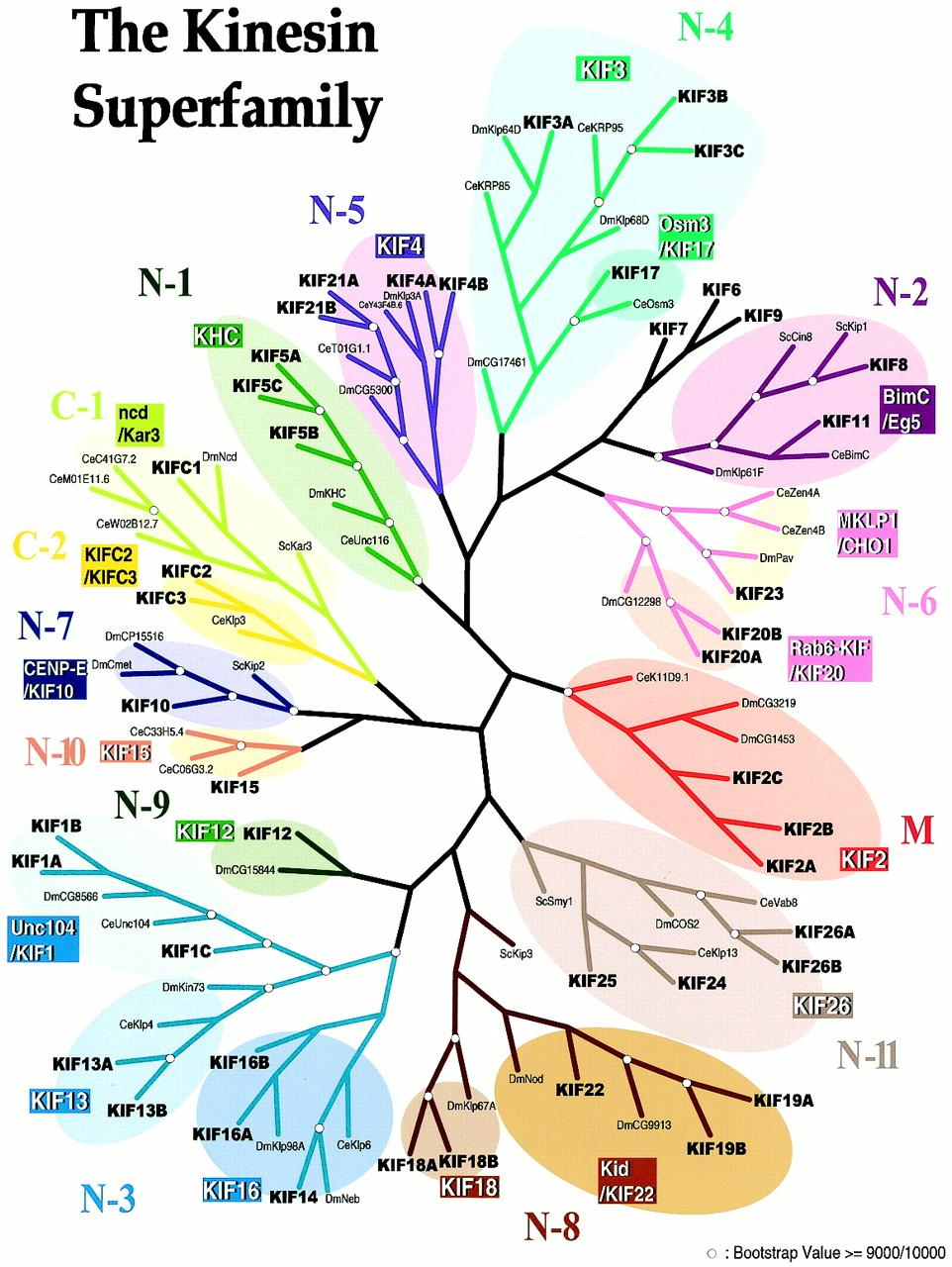Kinesins Gene Family
What is Kinesins Family?
The kinesin gene family refers to the family of protein genes that play key functions in cells, especially those closely related to the occurrence and development of diseases such as cancer. The proteins in these gene families are often referred to as "kinesins" or "cancer driver genes", because their abnormal expression or dysfunction can lead to the disorder of cell proliferation, survival, differentiation, apoptosis and other regulatory processes, thus promoting the development of tumors. form and develop.
The kinesin gene family plays a key role in many cell biological processes such as cell cycle, signal transduction, DNA repair, apoptosis, angiogenesis and so on. The mutation or abnormal expression of some of these kinesin families is closely related to the occurrence of various cancers, including common cancers such as breast cancer, lung cancer, and colorectal cancer.
In cancer research, the kinesin gene family is an important area of study. Scientists strive to gain a deeper understanding of the structure, function and regulation of kinesins in order to better understand the process of cancer development and to find potential therapeutic targets. For some kinesins, drugs or treatments have been developed with some success in cancer treatment.
At the same time, research to understand the kinesin gene family will also contribute to the development of personalized medicine and precision medicine. Through genetic testing of patient cancer samples, it can be determined whether there is abnormal expression or mutation of kinesin, so as to guide the selection of more effective treatment strategies and improve the treatment success rate and survival rate.

Research Areas of Kinesin Family
The field of study of the kinesin family is multifaceted, some of the main ones are as follows:
1.Cancer biology: The kinesin family is closely related to the initiation and progression of cancer. Researchers are committed to identifying and gaining a deeper understanding of kinesins in various cancers, exploring their mechanisms of action in tumorigenesis, proliferation, invasion and metastasis, and their interactions with other signaling pathways.
2.Genetics: The study of the kinesin family helps to understand how genetic variation leads to disease. By studying mutations and polymorphisms in the kinesin family, their impact on individual susceptibility, disease risk, and phenotypic expression can be revealed.
3.Cell Biology: The kinesin family plays key regulatory roles in cells. Researchers explore the functions and mechanisms of kinesins in cell proliferation, cell cycle regulation, cell signaling, cell motility, and cell differentiation to reveal their roles in normal cell physiology and disease states.
4.Drug development: The kinesin family is of great value as drug targets in drug development. Researchers use their deep understanding of kinesin structure and function to design and develop inhibitors or agonists against these proteins for the treatment of related diseases, especially cancer. These studies may include drug screening, drug design, drug mechanism research, etc.
5.Clinical application: The study of kinesin family has important clinical application value. Detection and expression analysis of kinesins contributes to cancer diagnosis, prognosis assessment and treatment selection. In addition, drug-targeted therapy against kinesins has been applied clinically, such as the application of targeted kinase inhibitors in cancer treatment.
Kinesins Molecule Symbols
References:
[1] Miki H, Setou M, Kaneshiro K, Hirokawa N. All kinesin superfamily protein, KIF, genes in mouse and human. Proc Natl Acad Sci U S A . 2001;98(13):7004-7011. doi:10.1073/pnas.111145398. https://pubmed.ncbi.nlm.nih.gov/11416179/





